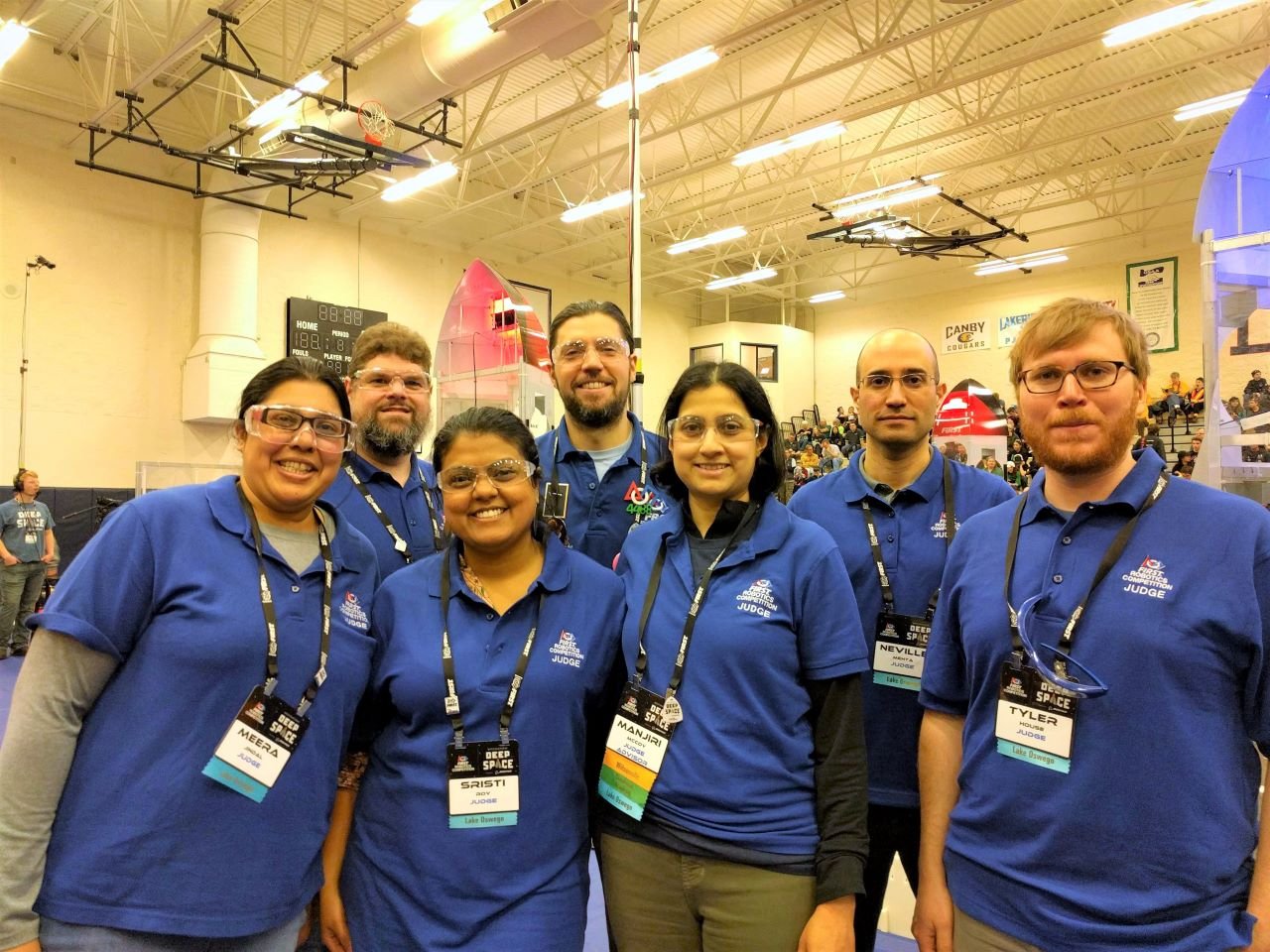FIRST Strategic Partner Amazon has a growing community of FIRST volunteers, supported by Amazon in the Community (AITC) and Amazon Future Engineer (AFE). Their volunteers are spread across the Unites States and are involved at all levels, from FIRST LEGO League Explore to FIRST Robotics Competition, supporting teams through mentorship, fundraising, judging and refereeing.
To celebrate Global Volunteer Month, we talked with Amazon employees Jason Cheng, Software Development for the Release Management Systems team for Amazon Logistics and FIRST alumni, and Manjiri McCoy, Software Development Engineer on the Alexa Health team, about their experiences as FIRST volunteers and the ways they've continued to volunteer throughout the global pandemic.
How long have you been volunteering with FIRST?
Jason: My first event was field reset in 2012, so about 9 years!
Manjiri: Since 2009 as a tournament volunteer, coach, Board member of ORTOP (FIRST Partner in Oregon), and Amazon in the Community Champion for FIRST at the Portland, Oregon site.
How did you get involved with FIRST?
Jason: My brother started on an FIRST Tech Challenge team, and when we moved to Iowa, we both joined FIRST Robotics Competition team 525 in Cedar Falls. We also helped start FIRST Tech Challenge team 6420 in the FIRST Robotics Competition offseason to get some additional experience!
Manjiri: I was recruited by a co-worker at Autodesk, where I worked previously.
What do you think is the most rewarding part of being a volunteer with FIRST?
Jason: FIRST gave me so much as a student, introducing me to STEM study, electrical and software work, and applying engineering concepts outside the classroom. Volunteering helps me give back and give those same experiences to students and future engineers.
Manjiri: I love interacting with students. They have no fear or any concept of limitations that we as adults have sometimes. They try anything and they often succeed!
Have you volunteered for a remote event? What was it like to volunteer remotely?
Jason: I’ve got about 12 remote events under my belt, and a few more left this season. Volunteering remotely is definitely a challenge, since there are a lot of moving parts for a traditional challenge, with some added technical difficulties when you throw virtual judging sessions and various submission portals in the mix. However, along with the challenges, there are a lot of new experiences and opportunities. We’re able to include more team members in judging, reach and involve different volunteers across regions, and provide some semblance of a season during these challenging times.
Manjiri: I’ve volunteered as a judge remotely both in 2020 and 2021. Though I miss seeing the students in person, I am grateful that technology allows us to interact virtually. The events this year went more smoothly than last year; probably because both students and volunteers are used to interacting with others virtually.
How does supporting teams or the FIRST community during the pandemic look different?
Jason: Nothing looks the same as it used to, and it’s very hard to replicate the excitement and atmosphere of a FIRST competition, but anything we can do to help is worth it. Virtual events don’t allow for teams to compete in person with others and limits interaction, but allows for more flexible scheduling across multiple days so we can accommodate limited or no access for teams day to day. Using a full week for FIRST LEGO League competitions, we can allow teams to submit practice matches and get feedback before recording official events. Through virtual pits and bringing multiple teams across regions together, we can help teams interact with others they may not traditionally see at events. The core values and chances to learn and grow stay the same. We can still try and help inspire students and help teams compete and learn, even though we can’t meet in person.
Manjiri: The pandemic has laid bare a lot of inequities in our communities and education system. Many teams that typically rely on school support have not been able to return this season. Well-funded teams that are independent of the school systems, on the other hand, have found ways to adapt and remain competitive. This inequity is something I hope we will continue to address as volunteers once we are able to meet in person again, and plan solutions that work for the most underserved.
